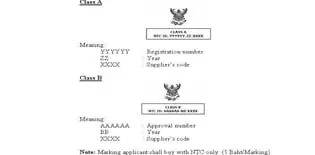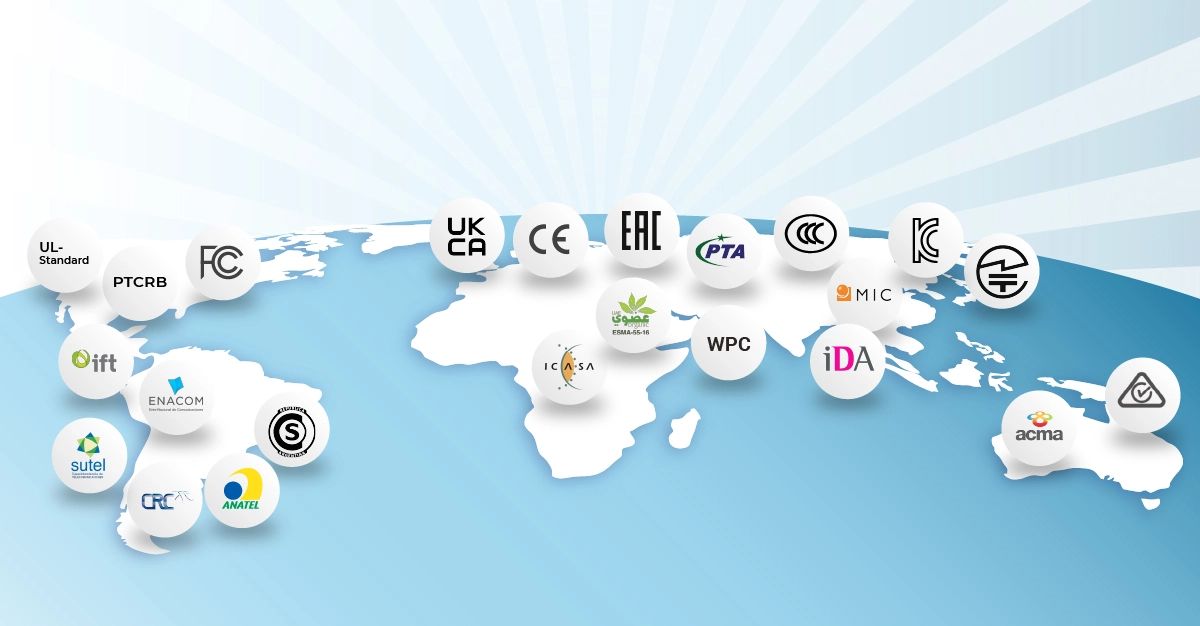NBTC Certification (Thailand Certification)
With the vast production of various products from different companies, multiple countries worldwide typically initiate a certification process for their products.
Not every product manufactured is safe for human life and immediate surroundings. Therefore, such products are confined and approved for use based on certain environmental constrictions.
That said, NBTC certification is among the most popular certifications evident in Thailand. In this guide, we’ve documented some of the pertinent pointers to deem fit for NBTC Telecom certification.
Obtaining the coveted NBTC certificate unlocks doors to a thriving telecom landscape, boosting brand trust and paving the way for successful business ventures. Understanding and complying with NBTC regulations is crucial for businesses looking to thrive in the Thai telecommunications market.
What is Thailand NBTC Certification?
NBTC certification is an acronym for the National Broadcasting and Telecommunications Commission, the regulatory body for telecommunications in Thailand. NBTC ensures that imported radio equipment meets stringent safety and performance standards.
This certification is part of the government management department and grants administrative penalty power.
In Thailand, NBTC certification corresponds to the Ministry of Industry and Information Technology. On the flip side, it deals with telecommunication networks and telecommunication products as well. Therefore, any wireless products, such as mobile phones, that must be exported to Thailand must acquire NBTC certification before being sold in the market.
How to Obtain NBTC Product’s Certification
Before your product is confirmed to be NBTC certified, you must adhere to the following specifications:
Registration
This is also known as class A. Before you get a registration number and certification, your product must be tested in a lab and offered legit data needed by NTC for approval. Streamlined self-declaration and basic documentation suffice for simple devices like Bluetooth headsets. Simple devices (e.g., Bluetooth headsets) qualify for streamlined self-declaration and basic documentation.
Approval Certification
The term “Class B” generally refers to approval certification. Likewise, this is similar to class A but somehow unique because it can use foreign reports, including CE, FCC, CB, and more. In this category, you must have a certification and a registration number. Rigorous testing and official NBTC approval are mandatory for intricate equipment like Wi-Fi routers.
Supplier’s Declaration of Conformity (SDoC)
Manufacturers can declare compliance for low-risk products, like certain antennas, on their own.
Thailand NBTC Certification Label
NBTC certification lacks specific labeling procedures for its products.
NBTC Certification Process
- Identify your category: Let our experts classify your equipment based on its technical specifics and intended use.
- Gather your documents: We’ll guide you through assembling the necessary technical documents, test reports (if applicable), and application forms.
- Submit your application: We guide you through the application process, ensuring accurate submission of all required documents.
- Embrace the evaluation: Relax as we handle the meticulous product testing and rigorous NBTC analysis.
- Claim your certification: Upon successful compliance, we help you claim your official NBTC certificate, granting Thai market access.
Why Choose 360Compliance for NBTC Thailand Certification?
Ensuring your telecom products meet NBTC standards is not just about compliance; it’s a gateway to market access and legal requirements. Conquering the NBTC alone can be a treacherous climb. As your expert guide, 360Compliance equips you with the following:
- Extensive Thailand Expertise: We deeply understand the NBTC regulations and intricacies of the Thailand market.
- Streamlined Processes: We efficiently navigate the complex certification process, saving you time and resources.
- Global Recognition: Our proven track record and worldwide presence inspire confidence and trust.
- Unwavering Support: We provide comprehensive guidance and support throughout the certification journey.
Contact us today for a free consultation and discover how 360Compliance can be your key to thriving in the vibrant Thai telecom market.
-
Regulatory AuthorityThai Industrial Standards Institute (TISI)
-
Mandatory/VoluntaryVaries
-
Report AcceptanceYes
-
In-country Testing RequiredYes
-
Local Representative RequiredYes
-
Label Mark RequirementYes
-
Certification Validity PeriodIndefinite
-
Authority Logo

-
Regulatory AuthorityNational Broadcasting and Telecoms Commission (NTC)
-
Mandatory/VoluntaryMandatory
-
Report AcceptanceYes
-
In-country Testing RequiredNo
-
Local Representative RequiredYes
-
Label Mark RequirementYes
-
Certification Validity Period1 year
-
Authority Logo

- Cyprus
- Austria
- Belarus
- Belgium
- Bulgaria
- Croatia
- Czech Republic
- Denmark
- Estonia
- Finland
- France
- Germany
- Greece
- Hungary
- Iceland
- Ireland
- Italy
- Latvia
- Liechtenstein
- Lithuania
- Luxembourg
- Malta
- Netherlands
- Norway
- Poland
- Portugal
- Romania
- Russia
- Slovakia
- Slovenia
- Spain
- Sweden
- Switzerland
- Ukraine
- United Kingdom
- Algeria
- Angola
- Benin
- Botswana
- Burkina Faso
- Burundi
- Cameroon
- Central Africa Republic
- Chad (Republic of Tchad)
- Comoros
- Cote D’lvoire (Ivory Coast)
- Democratic Republic Of The Congo
- Equatorial Guinea
- Ethiopia
- Gabon
- Gambia
- Ghana
- Guinea (Conackry)
- Guinea Bissau
- Kenya
- Lesotho
- Liberia
- Madagascar
- Malawi
- Mali
- Mauritania
- Mauritius
- Mozambique
- Namibia
- Niger
- Nigeria
- Republic Of The Congo
- Rwanda
- Senegal
- Seychelles
- Sierra Leone
- South Africa ICASA Certification
- Swaziland
- Tanzania
- Togo
- Uganda
- Zambia
- Zimbabwe


